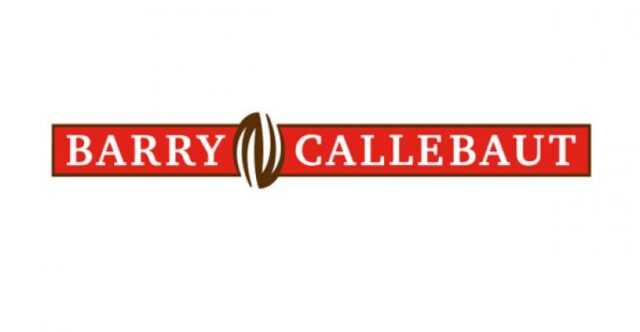ZURICH, Switzerland – The Barry Callebaut Group, the world’s leading manufacturer of high-quality chocolate and cocoa products, increased its sales volume by +8.2% to 585,620 tonnes during the first three months of fiscal year 2019/20 (ended on November 30, 2019). Sales volume in the chocolate business grew by +7.7%, well above the global chocolate confectionery market which was flat (-0.0%)2.
Growth was supported by all Regions and key growth drivers: Outsourcing (+2.7%), Emerging Markets (+16.7%) and Gourmet & Specialties (excluding Beverage, +4.4%). Sales volume in Global Cocoa grew +10.2%.
Excluding the first-time contribution from the consolidation of Inforum, organic volume growth was +6.2%. Sales revenue amounted to CHF 2,000.8 million, which represents an increase of +8.7% in local currencies (+6.3% in CHF).
Looking ahead, the CEO of The Barry Callebaut Group Antoine de Saint-Affrique said:
The strong start to the year, together with a healthy portfolio and the diligent execution of our ‘smart growth’ strategy, give us confidence that we are on track to deliver on our mid-term guidance for the period ending with fiscal year 2021/22.
1 On average for the 3-year period 2019/20 to 2021/22: +4-6% volume growth and EBIT above volume growth in local currencies, barring any major unforeseeable events.
2 Source: Nielsen, volume growth excluding e-commerce – 25 countries, September to November 2019, data subject to adjustment to match Barry Callebaut’s reporting period.
Strategic milestones in the first three months of fiscal year 2019/20
- Innovation: In September 2019, Barry Callebaut introduced ‘Cacaofruit Experience’, a new Food & Drink category including Wholefruit chocolate. Whereas normally 70% of the cacaofruit is discarded as waste, ‘Cacaofruit Experience’ makes use of the entire fruit. This results in highquality ingredients for applications such as juices, smoothies, frozen desserts, bakery and pastry products, all the way to chocolate. First ‘Cacaofruit Experience’ products for consumers are already being piloted in California, United States.
In November 2019, Barry Callebaut was granted a Temporary Marketing Permit (TMP) by the US Food and Drug Administration (FDA), clearing the way to market Ruby as chocolate in the United States. This is an important regulatory milestone towards establishing Ruby chocolate as the fourth type of chocolate. Only two years ago the first consumer brand launched Ruby chocolate and more than 70 brands in more than 50 countries have followed worldwide since.
The Barry Callebaut Gourmet brand Mona Lisa launched Ruby chocolate decorations, a convenient way for chefs to add a spark to any creation with the unique Ruby taste and color. Furthermore, in January 2020 Costa Coffee, the UK’s leading coffee shop, launched Ruby hot chocolate. Also in January 2020, Unilever launched Magnum Ruby ice cream bars in the United States, Germany and the UK. - Cost Leadership: In the first three months of fiscal year 2019/20 three additional Barry Callebaut factories were integrated into the Group’s global SAP system. The ongoing roll-out of a global SAP system will enhance the Group’s cost competitiveness through more efficient business processes as well as digital solutions. As part of the Group’s ongoing efforts to optimize its cost structure and in the light of the declining Indonesian cocoa crop, Barry Callebaut has announced the closure of its cocoa factory in Makassar, Indonesia, in January 2020. The Group’s growth in Region Asia Pacific will be well supported by its other factories in the region.
- Sustainability: Barry Callebaut published its third Forever Chocolate progress report on December 4, 2019, highlighting the progress of the Group towards making sustainable chocolate the norm by 2025. The achievements include that the Group sustainably sourced 47% of its cocoa and 54% of its other ingredients in fiscal year 2018/19. Furthermore, Barry Callebaut reduced its corporate CO2 equivalent (CO2e) footprint from 9.10 million tonnes to 8.49 million tonnes (-6.7%), while achieving a +5.1% increase in sales volume in fiscal year 2018/19. In addition, Barry Callebaut distributed over 1.8 million young cocoa seedlings and almost 750,000 shade trees for replanting in Côte d’Ivoire and Ghana. The Group also announced that as of end 2018/19 it had full data on 176,984 farms entered into its Katchilè database. This database provides key insights into the location, farm size, socio-economic and household data of cocoa farms and their farmers.


















